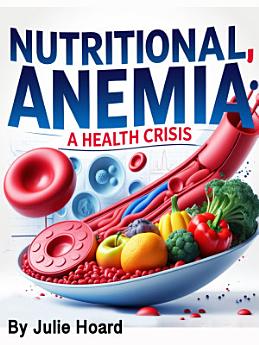Nutritional Anemia: A Health Crisis
O ovoj e-knjizi
The most common cause of nutritional anemia is iron deficiency, which is a crucial component of hemoglobin, the protein in red blood cells that binds to oxygen. Without enough iron, the body cannot produce enough healthy red blood cells, leading to anemia. Iron deficiency anemia is particularly prevalent in women of reproductive age, young children, and pregnant women due to their increased iron needs. Other nutrients, such as vitamin B12, folate, and copper, also play essential roles in the production of red blood cells, and deficiencies in these vitamins and minerals can lead to different forms of nutritional anemia.
Nutritional anemia is often characterized by symptoms like fatigue, pallor, dizziness, and shortness of breath. These symptoms can range from mild to severe, depending on the degree of deficiency. In many cases, individuals may not immediately recognize the symptoms, attributing them to stress, lack of sleep, or other health issues. This can delay diagnosis and treatment, leading to prolonged periods of anemia.






